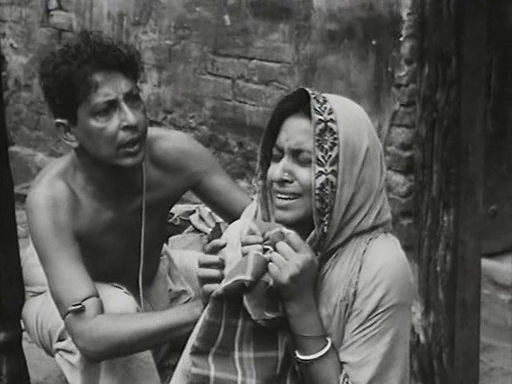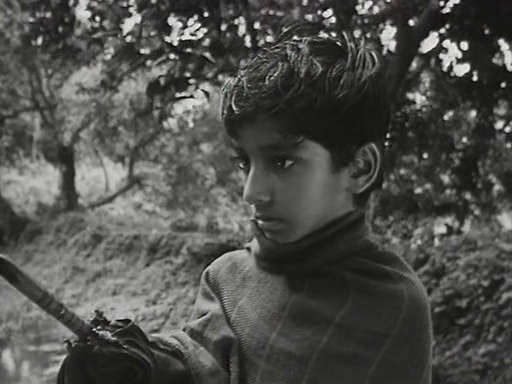Social realism can be pretty drab stuff. Or, like this justly renowned film masterpiece, it can elevate the ordinary details of life into the highest art. There is far more going on in Satyajit Ray’s brilliant directorial debut than the mere recording of life. Considering that he was a novice film-maker, the technical crew and actors were amateurs, and budget was 150,000 rupees (in 1955, less than a sandal-strap budget), Ray was able to create scenes of astonishing lyricism and intensity. Among them are that were the two children, Apu and Durga, chase through a field to see a passing train; where Apu watches, wonder-eyed, a village jatra play; and the homecoming of the father, who learns that his daughter has died. The film was based on the autobiographical novel by Bibhutibhushan Bandyopadhyay, who lived the intense poverty that he wrote of, and knew that the bottom of the social scale contains as many Hamlets and Andromaches as does the top. Everything about this film is honest, and the brilliant score by Ravi Shankar gives it additional depth. Ray went on to film two sequels. The three films are now known as the Apu Trilogy — Pather Panchali (1955); Aparajito [The Unvanquished](1956) and Apur Sansar [The World of Apu](1959). His subsequent career carved out a space for Bengali films, usually more serious in purpose than the output of Mumbai or Chennai.
(Ray 1955) Pather Panchali [পথের পাঁচালী; Pôther Pãchali; Song of the Little Road]
Leave a Comment
You must be logged in to post a comment.


0 Comments.